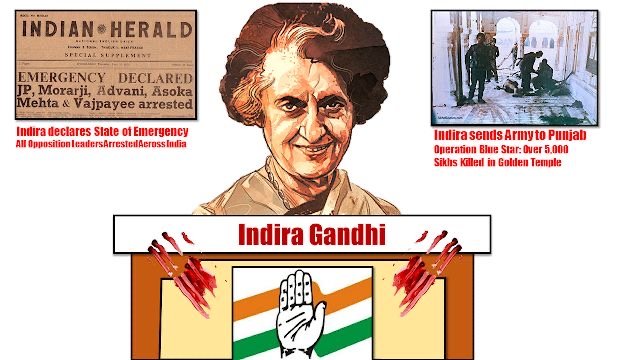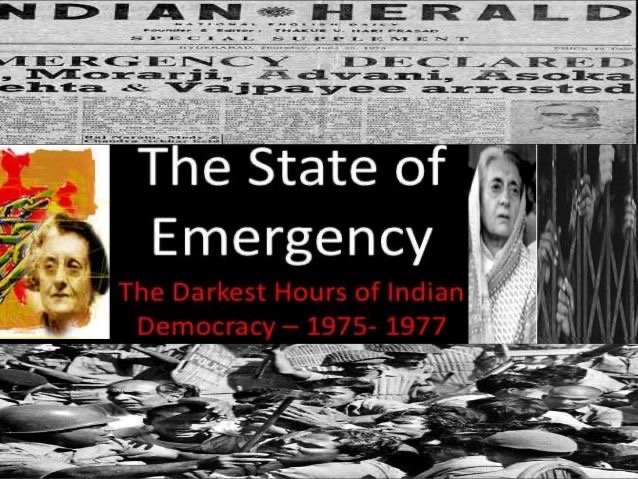25 JUNE 1975: Black day of Indian Democracy


The Indian Emergency of 25th June 1975–21st March 1977 was a 21 Month period when President Fakhruddin Ali Ahmed upon advice by Prime Minister Indira Gandhi, declared a state of emergency under Article 352 of the Constitution, effectively bestowing on her the power to rule by decree, suspending elections & civil liberties.

This was a dramatic turn in the Indian political affairs. The democracy was brought to a grinding halt and all the fundamental rights and legal remedies protected by the constitution of the republic of India were suspended.
On 12 June 1975, Justice Jagmohanlal Sinha of the Allahabad High Court found the prime minister guilty on the charge of misuse of government machinery for her election campaign. The court declared her election null and void and unseated her from her seat in the Lok Sabha. The court also banned her from contesting any election for an additional six yearsIndira Gandhi challenged the High Court’s decision in the Supreme Court. Justice V. R. Krishna Iyer, on 24 June 1975, upheld the High Court judgement.
In the fear of lost of power, later that day, Indira Gandhi requested a compliant President Fakhruddin Ali Ahmed to issue a proclamation of a state of emergency. Within three hours, the electricity to all major newspapers was cut and the political opposition arrested. The proposal was sent without discussion with the Union Cabinet, who only learnt of it and ratified it the next morning.
The socio-economic condition of India was in bad shape between 1972–1975. The two wars and the influx of eight million refugees from Bangladesh had strained the economy. There was a sharp increase in oil prices and prices of commodities. A monumentally high level of inflation had caused great distress, and most important industrial growth was low and unemployment was high.
The Nav Nirman movement led by the Akhil Bhartiya Vidyarthi Parishad(ABVP)in Gujarat, the Sampoorna Kranti agitation led by Jayaprakash Narayan(JP), and the national strike by the Railway workers union.

The slogan ‘Indira Hatato’ gained momentum and voices seeking the resignation of Indira Gandhi on moral grounds were at their peak.
On the evening of judgment by justice Krishna Iyer, JP recited Ramdhari Singh Dinkar’s “singhasan khali karo ki janta aati hai” in Ramlila ground.
JP also announced a week-long Satyagrah but at 9:30 pm on June 25, 1975, the proclamation of Emergency was sent. Opposition leaders of the Jan Sangh were taken into custody, censorship was imposed on the press, cinema, other forms of arts, and Fundamental rights suspended and a ban was announced on various organizations including RSS.
Indira Gandhi tried to defend the emergency on the grounds that she was trying to protect the state and the Indian people. Nevertheless, her emergency rule faced immense criticism and is undoubtedly one of the most controversial periods of the political history of Independent India.
Next year on March 22nd ,1976 Janata Party gains absolute majority.
DISCLAIMER: The author is solely responsible for the views expressed in this article. The author carries the responsibility for citing and/or licensing of images utilized within the text.
